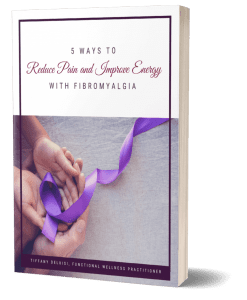3 Ways to Get A Hold of Your Pain Insomnia

Can you relate to this?
You dread bedtime. Relentless pain causes you to toss and turn all night. The clock on the nightstand reminds you how much sleep you are not getting with each passing hour. Finally, you fall asleep only to have the alarm go off a few hours later, telling you it’s time to wake up and greet the morning.
You face the new day exhausted, racked with excruciating pain, and wonder, “How will I ever make it through another day?”
You have pain. You can’t sleep. The lack of sleep increases the pain. The increased pain causes you to sleep even less.
As it continues for weeks, months, or even years, sleep deprivation can rob you of enjoying your life. You see no light at the end of the tunnel.
That was me. I was on a non-stop merry-go-round that was not merry at all. I felt hopeless. I found myself repeatedly thinking, “If I could only get a good night’s sleep!”
I was experiencing pain insomnia (sometimes referred to as painsomnia).
Pain insomnia is the vicious cycle of pain and sleep deprivation or fatigue related to a chronic condition or its treatment. The inability to sleep due to pain.
The awful cycle of never getting enough sleep can lead to feeling depressed, lonely, and desperate to find the right combination of sleep strategies to improve sleep.
Over time, I learned some helpful tips and tricks to get a good night’s sleep. As I share them, please keep in mind that not every night brings blissful sleep for me (last night, for instance!).
These strategies improved my sleeping patterns and helped reduce the frequency of pain insomnia episodes:
Tip #1: Develop Good Bedtime Habits
-
Have a consistent bedtime
-
Spend quiet time with people or pets
-
Soak in the bathtub (Epsom salt baths may help relax tight muscles)
-
Wind down with relaxation techniques (like reading, guided sleep meditation, bedtime yoga, and deep/diaphragmatic breathing) 30 minutes before bed
-
Tip #2: Create a Sleep-Promoting Environment
-
Dim the overhead lights
-
Turn on soothing background noise
-
Turn off the TV, computer, and cellphone
-
Put your phone “to bed” in another room
-
Keep the room temperature cool
Tip #3: Experiment with Sleep Positions and Pillows
In addition to sleeping on a comfortable bed with supportive pillows, sleeping positions are important to consider. My sleeping position varies throughout the night. Placing pillows in key spots helps keep my spine aligned and puts less strain and pressure on the painful areas of my body.
Depending on your sleeping position, these tricks may help you stay more comfortable:
Sleeping on your back:
-
Place a pillow under your knees for proper spine alignment
Sleeping on your side:
-
Place a pillow between your knees to reduce pressure on hips
Sleeping on your stomach:
-
Place a pillow under your hips to reduce pressure on the lower back
Sleeping in the fetal position:
-
Place a pillow between your knees to reduce strain on hips
Facing pain insomnia can feel overwhelming and impossible to improve sleep quality.
Not sure how to start? Begin with trying different strategies to improve sleep patterns. Focus on creating a sustainable routine by changing one habit at a time. By incorporating these strategies to improve sleeping patterns, you can break the pain insomnia cycle.







